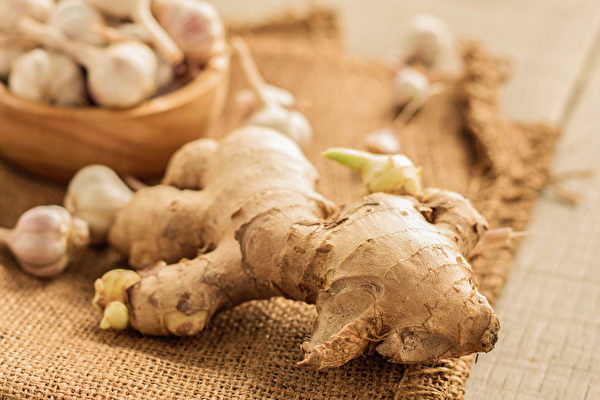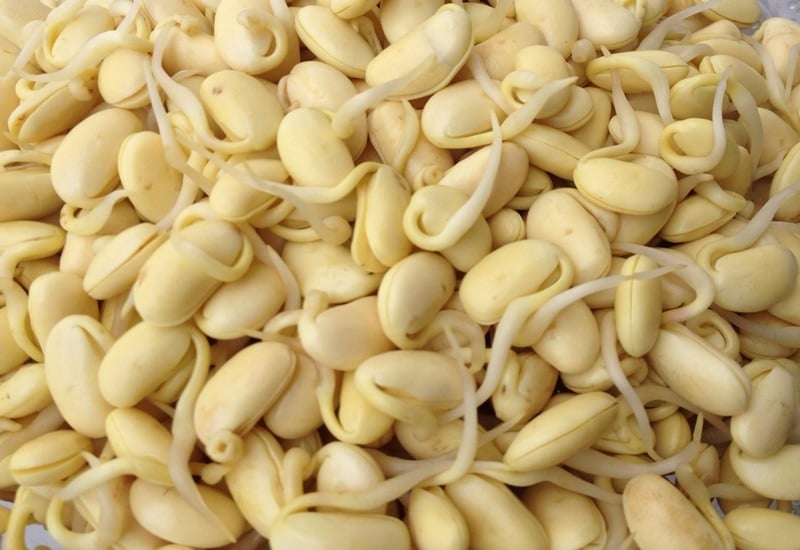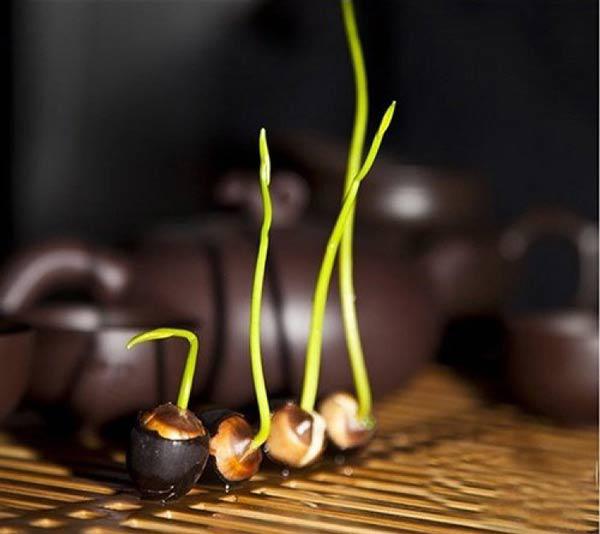Ginger
Ginger root is very easy to sprout but can still be used. However, the smell of ginger when it sprouts will not be as fragrant as before. Additionally, its nutritional value will decrease slightly. In general, it doesn’t have a big impact when used.
To store ginger, you should place it in a dark and cool place to slow down the sprouting process. Also, be careful to avoid eating rotten ginger as rotten ginger contains safrole, a highly toxic substance.

Garlic
After sprouting, garlic does not change color or become toxic, so it can still be eaten. In fact, the nutritional value of sprouted garlic is even higher than fresh garlic because they contain higher levels of antioxidants.
To store garlic, you should keep it in a cool place, away from sunlight.
Soybeans
After sprouting, the protein and fat content of soybeans decrease, while the vitamin C, calcium, and fiber content increase. Additionally, they do not contain phytic acid (phytic acid is an anti-nutrient that reduces the absorption of iron, zinc, and calcium, leading to mineral deficiencies).
To store sprouted soybeans, you should dry them thoroughly, store them in a glass jar, ensure minimal air enters the jar, tightly seal the jar, and keep it in a cool place.

Lotus seeds
When sprouted, the nutritional quality and amazing benefits of lotus seeds are enhanced. Additionally, the phenolic alkaloid content in the lotus seed core increases, helping to cool the body, relieve pain, and promote better blood clotting.
To store lotus seeds after purchasing, you should sun-dry them until crispy, then store them in a glass container for gradual use. Another way is to vacuum seal the lotus seeds or use specialized boxes for freezing.

Brown rice
Sprouted brown rice contains more nutrients such as gamma-aminobutyric acid (a substance that inhibits nerve signal transmission and increases protein and growth hormone synthesis, improving brain cell quality), and oryzanol (which helps prevent and treat digestive problems, reduce anxiety, and alleviate menstrual cramps in women).
Furthermore, sprouted brown rice stimulates the activity of a large number of enzymes such as phytase, magnesium, and other minerals, making it easier for the body to digest and absorb nutrients.
To store brown rice, you should consume it within 6-12 months and store it in a dry and cool place.
How to Effectively Treat Fishbone Issues at Home
Everyone loves feasting on the deliciousness of fish during the holidays. But, unfortunately, choking on fish bones is an unavoidable issue that may lead to devastating consequences if left unattended for a prolonged period. Let’s see how Dien May Xanh can help us out when fish bones get stuck in our throat.



































